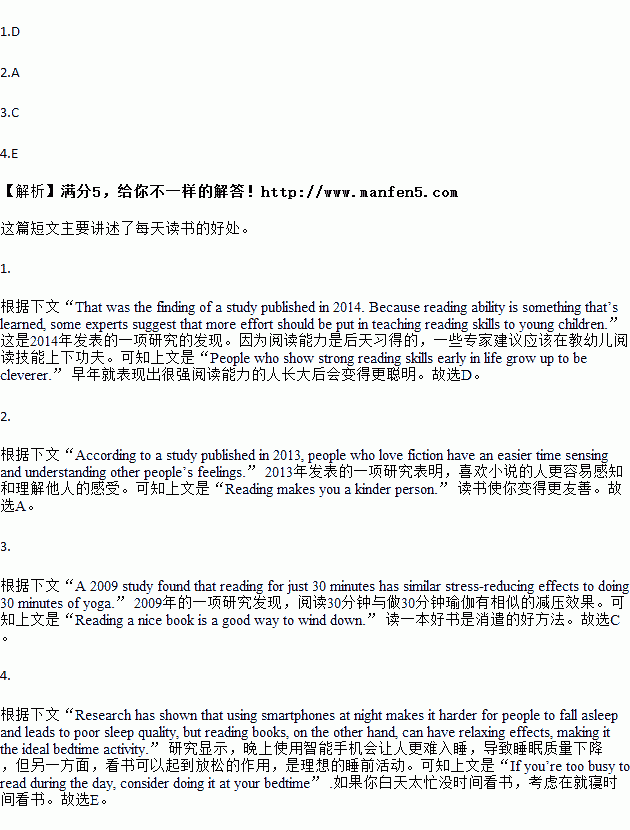题目内容
Benefits of Reading Every Day
Reading printed books every day can make you a smarter, kinder and more relaxed person. And the positive effects can be felt at any age.
Reading can make you smarter. 1. That was the finding of a study published in 2014. Because reading ability is something that’s learned, some experts suggest that more effort should be put in teaching reading skills to young children.
2. Great literature (文学作品) forces readers to step outside themselves to understand the characters they’re reading about. According to a study published in 2013, people who love fiction have an easier time sensing and understanding other people’s feelings.
Reading can lower stress. Feel stressed at the end of a long day? 3. A 2009 study found that reading for just 30 minutes has similar stress-reducing effects to doing 30 minutes of yoga.
Reading helps you sleep well. 4. Research has shown that using smartphones at night makes it harder for people to fall asleep and leads to poor sleep quality, but reading books, on the other hand, can have relaxing effects, making it the ideal bedtime activity.
Reading brings a family closer. Reading doesn’t have to be a solitary (单独的) activity. When parents read out loud to their children, they can pass on the benefits of reading and encourage meaningful interactions (互动). A recent study found that printed books can make the connections between caretakers and children stronger.
A.Reading makes you a kinder person.
B.Reading helps you get more information about the characters.
C.Reading a nice book is a good way to wind down.
D.People who show strong reading skills early in life grow up to be cleverer.
E.If you’re too busy to read during the day, consider doing it at your bedtime.

